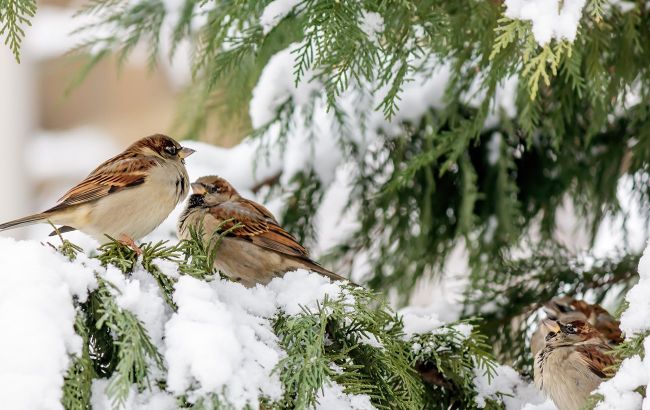How to feed birds in winter: Allowed and forbidden foods
 How to feed birds in winter (photo: Freepik)
How to feed birds in winter (photo: Freepik)
Feeding street animals and birds in winter is a good thing. However, in order not to harm animals, it is also worth knowing which food is forbidden and which is allowed. Kyiv Ecological and Cultural Center reveals what products can harm birds.
Best foods for birds
It is best to feed titmice and woodpeckers with unroasted sunflower seeds and unsalted lard. By the way, you can also use other seeds that you have: pumpkin, zucchini, or watermelon.
The seeds must be thoroughly dried in advance. However, do not clean or salt it.
Snowbirds and blackbirds can be fed viburnum berries. You may have noticed that birds always eat from other fruit trees if there are any fruits or berries left.
Wild ducks and swans are very fond of pearl barley, which is quite cheap in stores. You can also use oats and millet.
By the way, you may be surprised, but tits like butter and meat.
A crushed eggshell will be of particular benefit to the birds. It is rich in calcium, so it will be of use to birds during the cold season.
Harmful products
People often mistakenly think that birds can eat all grains. However, this is not the case. They cannot eat buckwheat and rice, which the birds cannot digest. Millet should be given in small portions.
Human food waste is also not suitable for feeding wild birds.
The most important thing is chewing gum, which is strictly forbidden to give to birds. There can be two dangers at once. A bird's beak can get stuck in the gum, and the animal will die because it will not be able to feed itself.
The second danger is that, if swallowed, the chewing gum will not be digested in the bird's stomach. It blocks its digestive tract and the animal dies.

